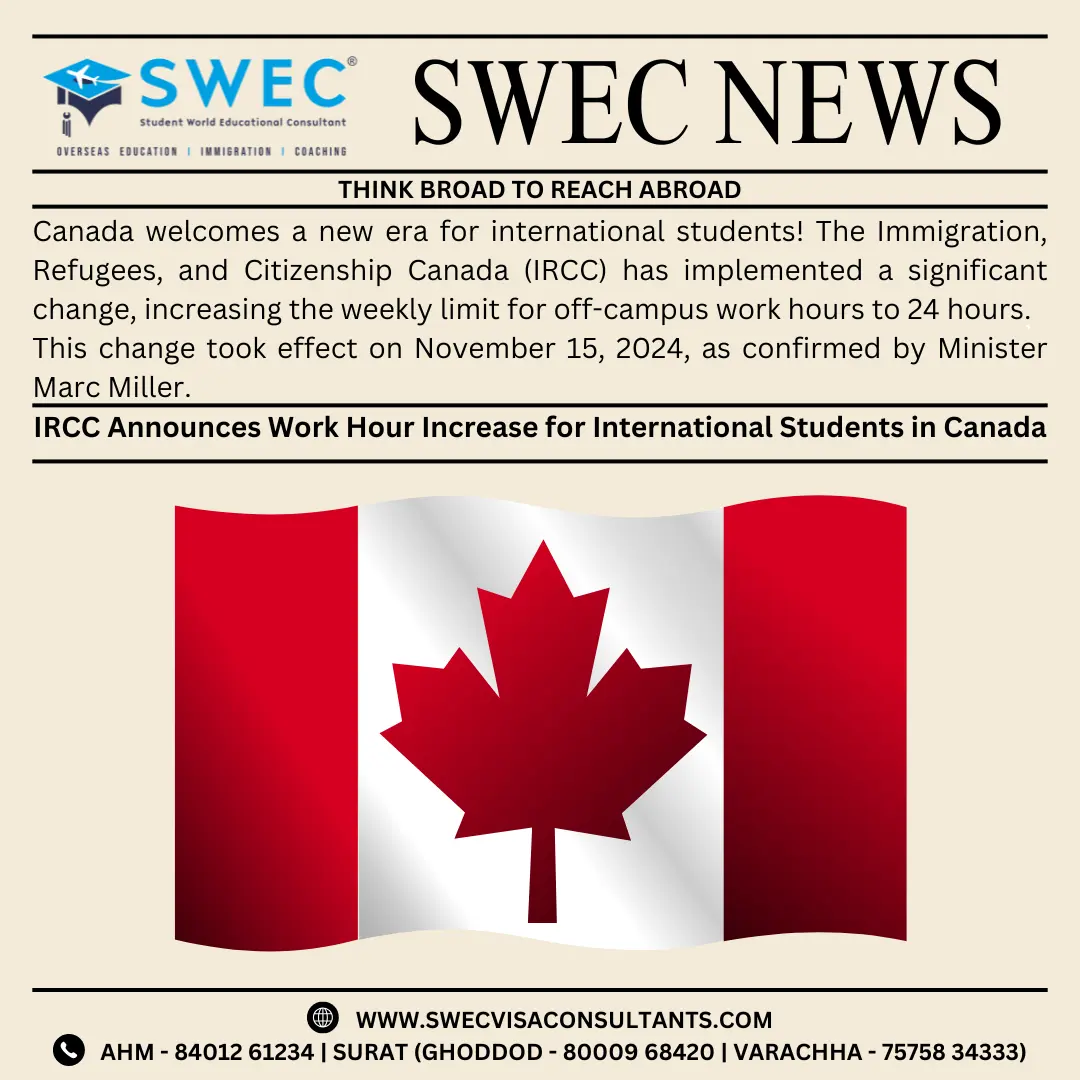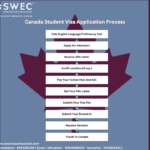Canada welcomes a new era for international students! The Immigration, Refugees, and Citizenship Canada (IRCC) has implemented a significant change, increasing the weekly limit for off-campus work hours to 24 hours. This update comes as a relief for students juggling their academic goals with financial needs.
This change took effect on November 15, 2024, as confirmed by Minister Marc Miller. The update provides a balanced approach to supporting students’ financial needs while ensuring academic priorities are not compromised.
Why Choose Canada for Your Studies?
This change makes the country an even more attractive option for students aspiring to study in Canada. Known for its world-class education and diverse cultural environment, Canada offers abundant opportunities for international students.
IRCC’s updated regulations are designed to make life easier for international students, allowing them to balance their academic commitments while earning extra income through part-time work.
Key Updates for International Students in Canada
The new rules introduced by IRCC include:
- Increased Work Hours:
- Students can now work 24 hours per week off-campus during school terms.
- This is a significant improvement from the earlier limit of 20 hours per week.
- Unlimited Work Opportunities:
- Work hours remain uncapped on campus.
- No restrictions apply during academic breaks, enabling students to work full-time off-campus.
- New Study Permit Requirement for School Changes:
- International students must apply for a new study permit before transferring to another designated learning institution (DLI).
Why Did IRCC Make These Changes?
The update aligns with IRCC’s efforts to enhance the integrity of the International Student Program. According to IRCC, the 24-hour cap strikes a perfect balance between helping students earn more and ensuring they prioritise their academics.
A Brief Timeline of Policy Changes:
- Pre-pandemic Rules: Students were allowed to work 20 hours per week off-campus.
- Pandemic Adjustments: A temporary policy permitted students to work up to 40 hours per week to address Canada’s labour shortages. This policy ended on April 30, 2024.
- Post-Pandemic Policy: The 24-hour cap is a sustainable adjustment, providing flexibility for students and addressing employer needs.
Benefits of Studying in Canada with the Updated Rules
- Financial Support:
- International students in Canada can now earn more to manage tuition and living expenses.
- Enhanced Work Experience:
- Gain valuable professional exposure by working part-time during school terms and full-time during breaks.
- Diverse Opportunities:
- Explore job opportunities across sectors while benefiting from Canada’s welcoming work environment.
How Does This Impact Study Permit?
With the new regulations, IRCC requires students to apply for a fresh study permit before changing their institution. This ensures accountability and strengthens the structure of the student visa program.
Plan Your Journey to Study in Canada
Canada continues to lead as a top destination for international education, thanks to progressive policies by IRCC. If you’re considering applying for a student visa or want to learn more about studying in Canada, now is the perfect time to start your application process. To Know more you can contact SWEC.
FAQs
1. Who announced the new rules for international students in Canada?
The changes were announced by IRCC, led by Minister Marc Miller.
2. When did the new work hour limit take effect?
The 24-hour work limit became effective on November 15, 2024.
3. Can international students work more than 24 hours per week?
Yes, students can work unlimited hours on campus or during scheduled breaks. However, they must adhere to the 24-hour limit for off-campus work while classes are in session.
4. What is the process for changing schools in Canada?
International students must now apply for and, in some cases, get approved for a new study permit before transferring to another institution.





